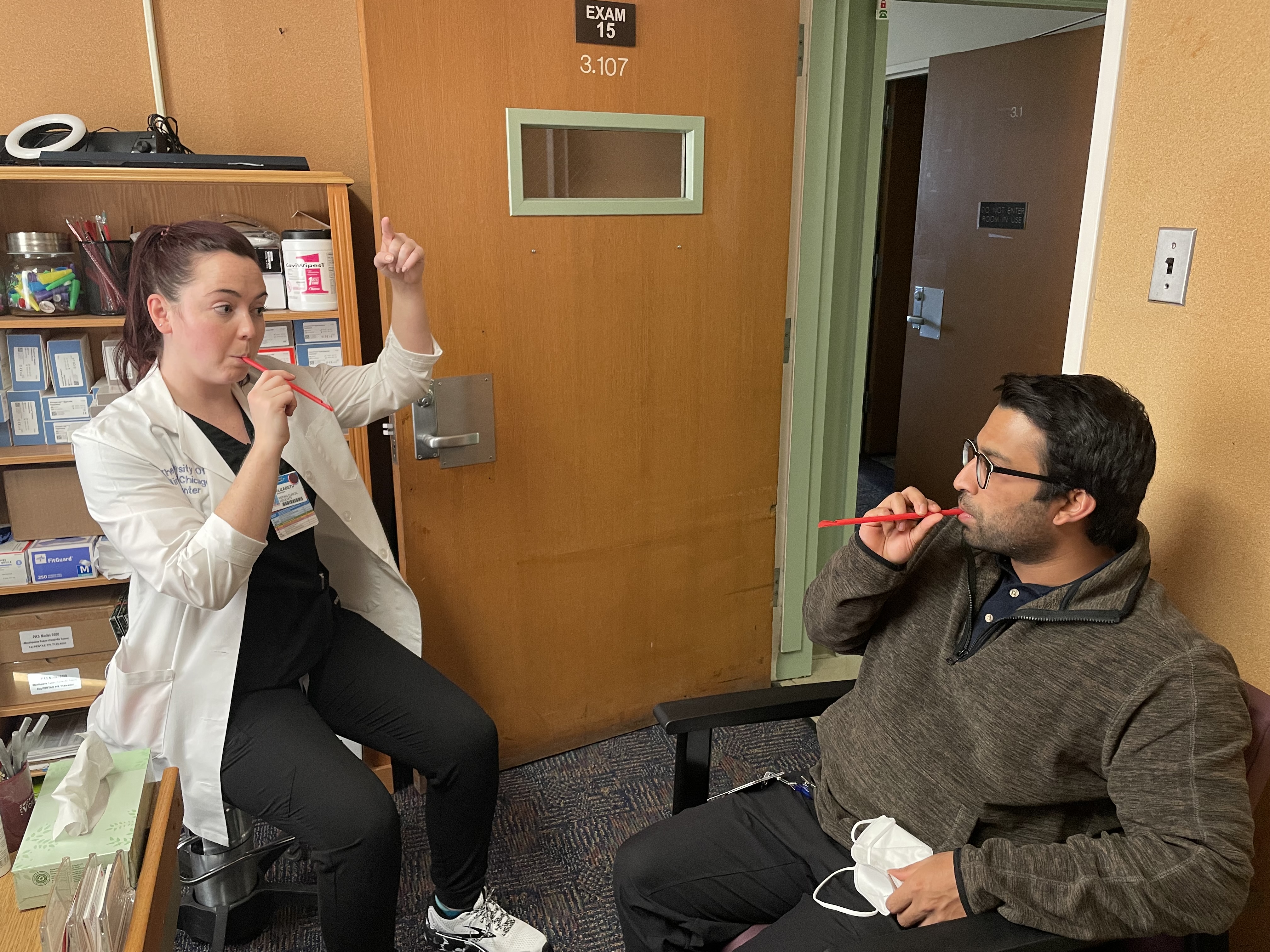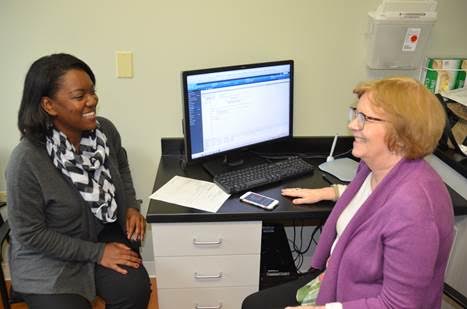Voice Therapy
Voice therapy at the Chicago Institute for Voice Care offers a wide range of treatment options with the goal of restoring each voice to its previous function. We treat a wide range of laryngeal disorders such as benign lesions, functional voice problems including muscle tension dysphonia, neurological voice issues (e.g. tremor, spasmodic dysphonia), chronic cough, gender affirming voice therapy, as well as upper airway breathing disorders (e.g. paradoxical vocal fold motion or vocal cord dysfunction).

Our therapy plan is individualized based on the unique needs of each patient. A typical voice therapy program includes:
- Patient Education - Using videos and images, you learn about the normal anatomy and physiology of how vocal sound is produced. We translate from medical terminology to help you understand your particular diagnosis.
- Determining Typical Vocal Behaviors – Many voice disorders are caused by overuse or misuse. In order to correct an issue, we must understand all the factors that contribute to your pattern of voice use and address each component.
- Voice Hygiene – Like any other part of your body, your voice needs proper care. Some of the information obtained in the evaluation will help us advise you on on appropriate hydration, diet, and lifestyle adjustments that may help your voice.
- Technique Training – Many of the ideas behind voice therapy will seem totally new. We provide explanations and examples to help you understand these new concepts. We will teach you optimal techniques for using your voice. This may include adjustments to your pitch, resonance, and volume, to name a few. The ultimate goal is to have you perceive, by feeling as well as listening, what is going on with your voice. After discharge, you will be able to make your own adjustments to your voice.
- Evaluating the Effectiveness of Therapy - Our therapist conducts ongoing perceptual and objective monitoring of vocal parameters to evaluate the efficacy of voice therapy. You, as the patient, are an important part of this process. You will be asked at the start of each therapy session how the various techniques worked for you and adjustments will be made as needed. Also, either the Speech Language Pathologist (SLP) or the Laryngologist will re-examine the vocal folds to assess structural changes throughout the therapy process.
- Visual Biofeedback – If helpful, you can be provided with visual images of your voice in real time in order to help you modify voice production.
Scheduling An Appointment
Typically, our patients see our laryngologist, Dr. H. Steven Sims, before starting voice therapy. If you have seen him or a different laryngologist, please make an appointment directly with our speech-language pathologist either on our website or by calling (312) 996-6583 and specify that you need voice therapy and that you’ve seen a laryngologist. Also, be sure to bring any reports or pictures from your previous laryngologist’s appointment to your first therapy session.
If you haven’t seen a laryngologist, please use the same online form or phone number to book an appointment with Dr. Sims.
Check with your insurance company to learn if voice therapy is covered for your diagnosis. If you have an HMO, you will need referrals and those must be obtained before the start of voice therapy. For the evaluation, the codes you will need are 92524 and 92520. For therapy, we generally start with 4-6 visits, using code 92507. If you have any other questions, please contact us and our friendly staff will be happy to help.
